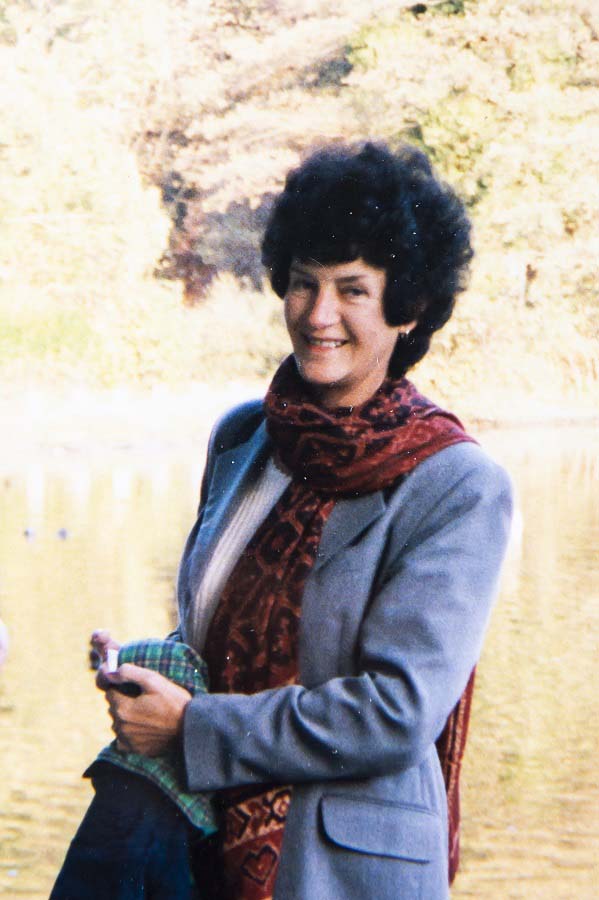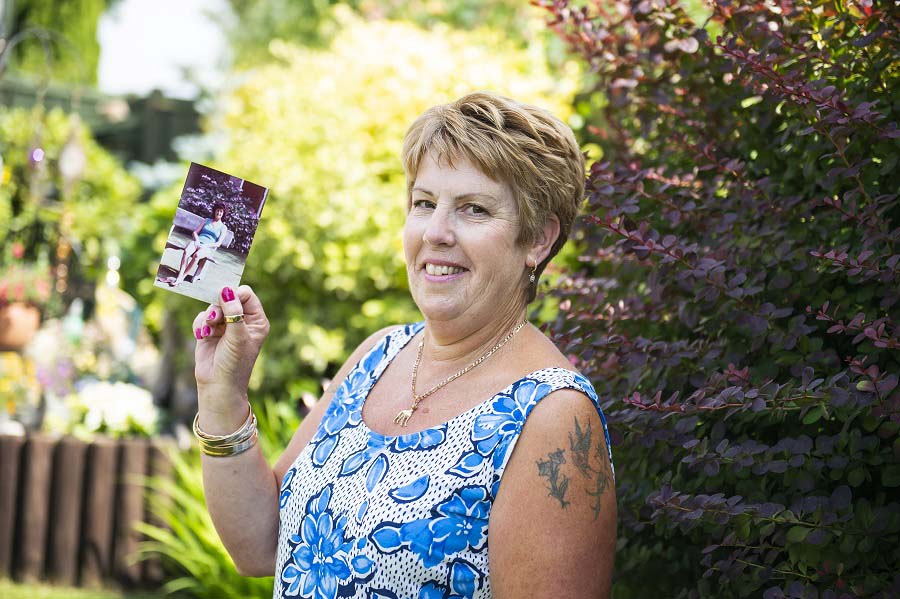Family of 83-year-old organ donor urges people to save lives as report reveals urgent shortage of older donors
The family of one of the UK’s oldest donors this year is urging people to support organ donation no matter what their age.
 Ann Butler, aged 83, of May Hill in Gloucestershire, was able to donate her liver for a lifesaving transplant. She had a brain haemorrhage while shopping in Tesco after getting her hair done. She is one of the 10 oldest solid organ donors over the year. (1)
Ann Butler, aged 83, of May Hill in Gloucestershire, was able to donate her liver for a lifesaving transplant. She had a brain haemorrhage while shopping in Tesco after getting her hair done. She is one of the 10 oldest solid organ donors over the year. (1)
Her family are speaking out because the annual Organ Donation and Transplantation Activity Report (published Monday, July 9) by NHS Blood and Transplant, reveals there is still an urgent need for the over 50s to support organ donation.
The report shows that only 21% of people on the NHS Organ Donor Register are aged over 50 when they registered. (2) In comparison, 72% of people who die in circumstances where they can be referred for potential donation are now aged over 50. (3)
Many over 50s don’t join the register or tell their families they want to donate because they don't think their organs could help other people. If more people in the older age groups told their families they supported donation, even more lives would be saved. The activity report reveals 411 people died waiting for a transplant last year.
There are several factors behind the changing age of potential donors. These include the UK’s ageing population, better clinical awareness around older donors, and welcome improvements in trauma care which mean young people are less likely to die in circumstances where they can donate.
Ann, a former inland revenue employee, became a donor at Gloucestershire Royal Hospital in March.
 Her niece Leona Hanwell, 60, a married mum of two from Bosham in West Sussex, said: “Ann was very caring and very kind and sympathetic to people. She loved animals and did a lot to support the Cats Protection League.
Her niece Leona Hanwell, 60, a married mum of two from Bosham in West Sussex, said: “Ann was very caring and very kind and sympathetic to people. She loved animals and did a lot to support the Cats Protection League.
“When my parents were in hospital and she was visiting, if there was anybody on the ward crying out for a nurse, and she would go and talk to them. It didn’t surprise me at all that she was on the NHS Organ Donor Register.
“I was contacted by phone about donation and my feeling was that they were welcome to have anything that would help other people.
“I think when you are gone you are gone and if you can help other people with what’s left you should. If I needed a transplant I would be happy to receive one so I should donate. It must feel like a miracle when something comes along.
“It did surprise me that she was able to donate, I just felt she was maybe too old. It shows people can be a lifesaver through to their 80s and I hope other people do it too.
“We heard the liver went to a male recipient. I was really pleased to get the letter. It just feels like in one sense she didn’t pass away. There was a glimmer of hope, a bit of happiness. A little bit of comfort that you can take.”
Only a small number of people aged over 80 donate each year although nearly 1,000 people aged over 50 donate every year. (4)
Patients who die in circumstances where they may be able to donate their organs, irrespective of age, are considered individually. Doctors assess whether or not someone’s organs can be safely used to help others, reviewing information from the person’s medical and life history and talking to the next of kin.
Sally Johnson, Director of Organ Donation and Transplantation for NHS Blood and Transplant, said: “Organ donation saves lives and more and more people aged over 50 are supporting donation.
“However too many people mistakenly assume their age means their organs won’t be healthy enough to help other people. People in their 50s, 60, 70s, and even 80s can all save lives.
“Many more lives could be saved if people in these age groups told their families they want to donate. You may not be able to donate your heart or lungs but many can still save lives through donating organs such as their kidneys and liver. Not everyone can donate but doctors will able to decide if you can help others.
“I am 59 and if I were to die suddenly, I hope that my organs could be used to save someone’s life. I haven't always been as careful with my health as I should have been but still I hope that my organs could help another person. That’s why I’m on the NHS Organ Donor Register and all my family and friends know what I want to happen.”
She added: “Ann’s donation is inspirational. We hope many more people aged over 50 are inspired to tell their families they want to save lives through organ donation. Don’t leave your family guessing what you want.”
Further key figures from the 2017/2018 activity report include:
- The consent rate for deceased donation has reached a record high, with 65.5% of families agreeing to support the donation of a relative’s organs.
- The number of deceased donors reached a record high of 1574 (5), an 11% increase over the previous year.
- The total number of patients whose lives were saved or improved by an organ transplant reached a record high of 5,090, an increase of 7% on the previous year.
- The number of living donors increased by 1% to 1,051, accounting for 40% of the total number of organ donors
- 411 people died on the transplant waiting list. A further 755 people were removed from the transplant list. The removals were mostly as a result of deteriorating health and ineligibility for transplant and many of these patients would have died shortly afterwards.
- In the ten years since publication of the Organ Donation Taskforce report ‘Organs for Transplants’, the number of people donating their organs in death has increased by 95% from 809 in 2007/2008 to 1,574 in 2017/2018.
- The transplant waiting list continues to fall. It stood at 6,044 on March 31 2018, compared to 8,012 on March 31 2010.
Tell your family you want to donate and join the NHS Organ Donor Register at www.organdonation.nhs.uk
Ends
- For additional information please contact Stephen Bailey in the NHSBT Press Office on 0151 268 7017 and Stephen.bailey@nhsbt.nhs.uk or the NHSBT Press Office on 01923 367 600 and email pressoffice@nhsbt.nhs.uk
- For urgent out of hours press queries call 0117 969 2444
Press Release Notes
- During the 2017/18 financial year. Solid organ donation and transplantation is when the whole organ transplanted.
- The Transplant Activity Report 2017/2018 shows that as of March 31 2018, 20.9% of people on the NHS Organ Donor Register were aged over 50 when they registered. Of the people who joined the NHS Organ Donor Register in 2017/18, 26.8% were aged over 50 at the time of registration.
- Figures from the NHS and Blood Transplant 2017/18 Potential Donor Audit. Age group 0-17: Patients referred for potential donation - 264, Proportion of referrals - 4%. Age group 18-49: Patients referred for potential donation - 1735, Proportion of referrals - 24%. Age group 50-59: Patients referred for potential donation - 1492, Proportion of referrals - 20%. Age group 60-69: Patients referred for potential donation - 1739, Proportion of referrals - 24%. Age group 70+: Patients referred for potential donation - 2072, Proportion of referrals - 28%. Total: Patients referred for potential donation - 7302.
- During 2017/18, there were 975 deceased organ donors aged 50 or over.
- This figure was adjusted from the 1575 figure reported immediately after the end of the year.
NHS Blood and Transplant Notes to Editors
- NHS Blood and Transplant (NHSBT) is a joint England and Wales Special Health Authority. Its remit includes the provision of a reliable, efficient supply of blood and associated services to the NHS in England. It is also the organ donor organisation for the whole of the UK and is responsible for matching and allocating donated organs.
- It is quick and easy to join the NHS Organ Donor Register. Visit www.organdonation.nhs.uk or contact our 24 hour a day donor line - 0300 123 23 23.
- Letting your family know your organ donation decision will make it much easier for them to support what you want.
- Every day across the UK around three people who could have benefited from a transplant die because there aren’t enough organ donors. We need more people to agree to organ donation
- Anyone can join the NHS Organ Donor Register, age and medical conditions are not necessarily a barrier to donation.
- One donor can save or transform up to nine lives through organ donation and transform even more by donating tissue.
- There is a particular need for more black and Asian organ donors. People from Black and Asian communities have a higher incidence of conditions such as diabetes and certain forms of hepatitis, making them more likely to need a transplant. Black, Asian and Minority Ethnic patients make up a third of the active kidney transplant waiting list. Although some are able to receive a transplant from a white donor, for many the best match will come from a donor from the same ethnic background. Black, Asian and Minority Ethnic donors are needed to improve the chances of these patients getting the kidney transplant they need.
- Whilst there may be some individual concerns relating to religious or cultural practices, all the major religions support organ donation.
